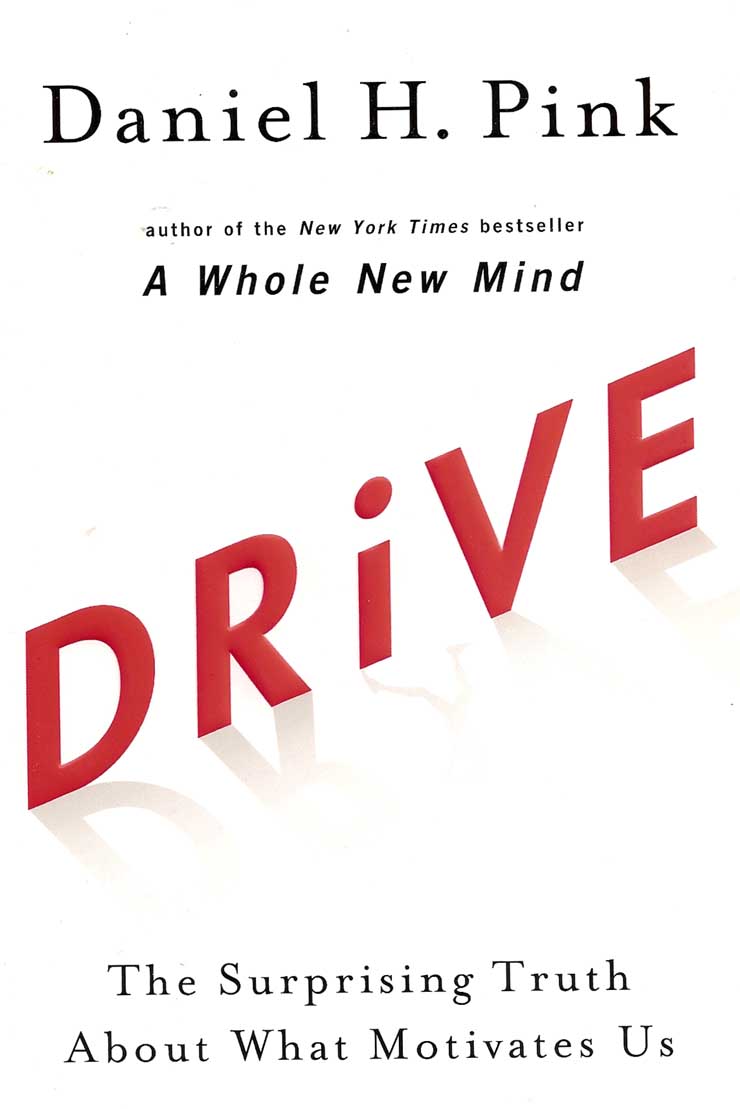If you want people to perform better, the answer is simple, pay them more, right? Not so, it turns out. Higher financial rewards actually cause a decrease in performance on tasks requiring even rudimentary cognitive skill. Excuse me? This is what Dan Pink shares with us in his book,“Drive”, and in this video:
https://www.youtube.com/watch?v=u6XAPnuFjJc.
If it’s not money, what is it? Three things, according to Pink: Autonomy, which is the desire to be self-directed, Mastery, or the urge to get better at things and Purpose, described as a meaningful contribution to making the world a better place. Good grief – you mean money doesn’t matter? Well, yes it does, but not in the way we might think. We all need to feel that we’re being treated fairly, and in this case, it means being paid competitively. Provided that bar is reached, the money issue ceases to be as important as having personal freedom to pursue meaningful work that challenges us to get better.
The under-thirties seem to grasp this intuitively, and that is certainly the message that comes across loud and clear when interviewing them for potential jobs. “I want work/life balance and I want to do something meaningful. I’m interested in my work experience, not just my paycheque.” To those of us who came up through the ranks during the era of sweat equity, this can seem heretical. “What do you mean they don’t want to work a 100 hour week? Spoiled brats. I did it, and so should they.” Like a humiliating fraternity initiation, the worse it was, the more likely we are to defend it. But maybe this bears a second glance. Consider, for instance, the insane system of requiring interns and residents to put in punishingly long hours. It’s tradition! It toughens them up! Doctors should be able to go without sleep. Er, why? and really, who among us wants to be the patient treated by the doctor who has just finished a 56 hour shift?
In our increasingly mobile world, where more and more people are working without quotas for backside-in-the-assigned-cubicle-chair time, this should come as a relief. Employers can readily facilitate the Autonomy part. As well, it turns out that, the desire for Mastery is often satisfied in employees’ own time through weekend jamming with a band, creating delicious meals or perfecting their photography, although providing challenging work certainly won’t hurt. Think Wikipedia and Linux – all done through collaboration between highly skilled, gainfully employed people, done on their own time, for free. Who knew?
All that is fine, but what about this Purpose business? Isn’t the purpose of a corporation to make money? How far is an employer expected to go now to keep employees engaged? Pink stresses that profits and engagement not mutually exclusive. Au contraire. Making money is important to both workers and companies, especially if we ever hope to get our under-thirties out of their parents’ basements. The organizations that will grow and prosper will balance profit motive with adding value. Take Zappos, whose company motto is “We’re in the business of customer service We just happen to sell shoes.”
In summary, as employers, we need to:
- pay a fair, competitive wage
- provide as much autonomy and challenging work as possible
- ask “how does what we do make the world a better place?” and hold on to that connection. Put another way, ask “what does the client/customer want? How can we add value?”
As an employee, when assessing your opportunities, consider:
- how much flexibility and autonomy is available. Are there ways to increase it and still get the job done?
- what challenges and opportunities are there to improve your skills, paid or not
- what you and your employer do together, to add value and leave the world better than you found it

